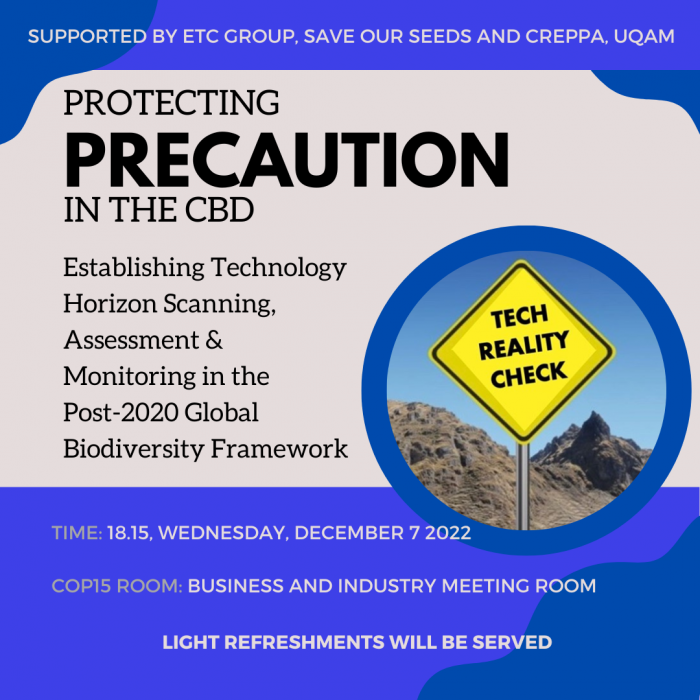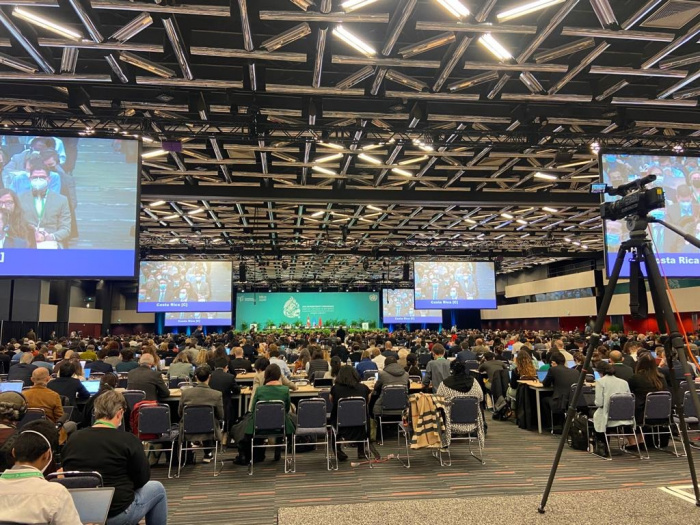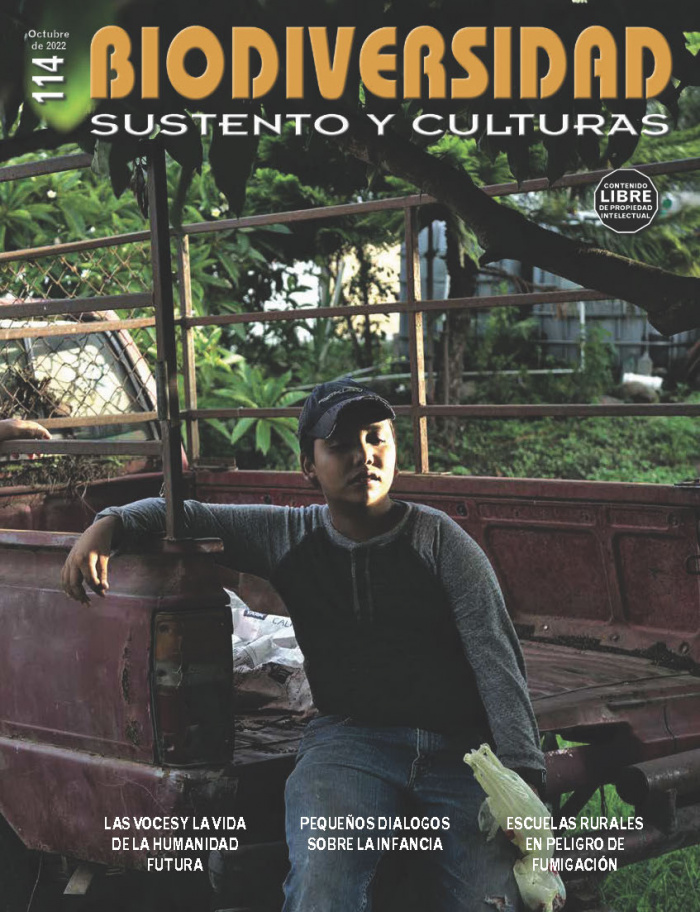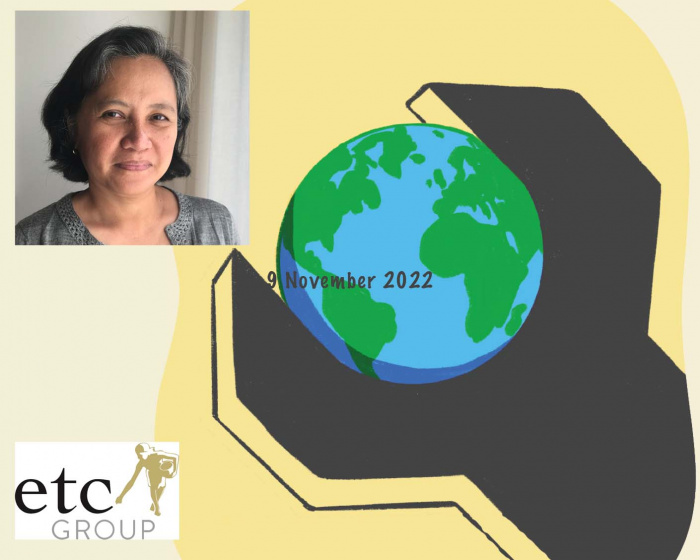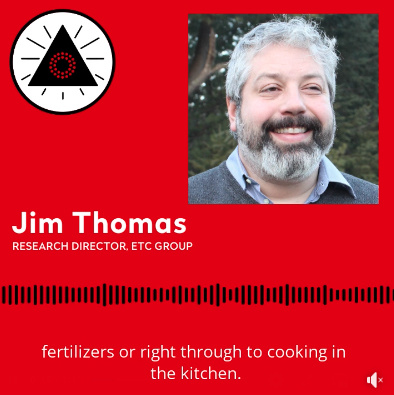Protecting Precaution in the CBD
Submitted by Laura Dunn on
TIME: 18.15, Wednesday, December 7 2022
LOCATION: Business and Industry Organizations Meeting Room
Light refreshments will be served
Since its earliest days, the CBD has prioritised the precautionary approach to assess and monitor the impacts of new technologies. In an era of rapid technologically-driven change and ever greater technological power, policymakers need the means to see and prepare for disruptive trends. Come and hear:

